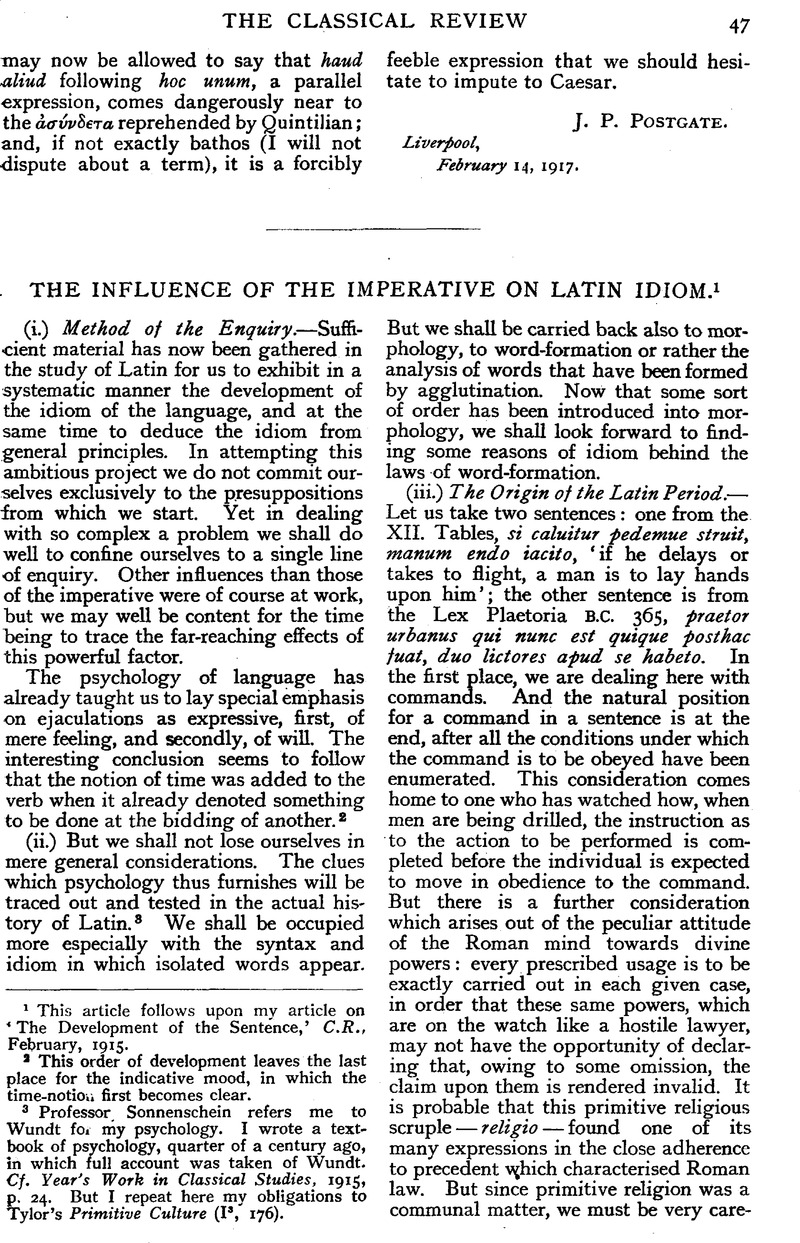No CrossRef data available.
Article contents
The Influence of the Imperative on Latin Idiom1
Published online by Cambridge University Press: 27 October 2009
Abstract

- Type
- Original Contributions
- Information
- Copyright
- Copyright © The Classical Association 1917
References
page 47 note 2 This order of development leaves the last place for the indicative mood, in which the time-notion first becomes clear.
page 47 note 3 Professor Sonnenschein refers me to Wundt for my psychology. I wrote a textbook of psychology, quarter of a century ago, in which full account was taken of Wundt. Cf. Year's Work in Classical Studies, 1915, p. 24. But I repeat here my obligations to Tylor's Primitive Culture (I3, 176).
page 48 note 1 The primitive idea of holiness implies as its chief element, relation to the communal life (Worship of the Romans, 211).
page 48 note 2 Monro, Homeric Grammar, § 242.
page 48 note 3 Wordsworth, Fragments and Specimens of Early Latin, p. 172.
page 48 note 4 Op. cit. p. 171. The reference to past time may not be due to the subordinate moods, but to their dependence on the main verb. Monro, op. cit. § 317.
page 48 note 5 Infra § 41.
page 48 note 6 Wordsworth, op. cit. p. 303.
page 49 note 1 Brugmann, Grundriss, II. § 918.
page 49 note 2 Brugmann, Grundriss, II. § 824.
page 49 note 3 Giles, Comparative Philology, § 492. The whole problem most clearly appears in the relation of ὠ to εἰμι.
page 49 note 3 Madvig, Latin Grammar, § 361, Obs. 1.
page 50 note 1 M. Williams, Sanskrit Gr., § 868.
page 50 note 2 Wordsworth, op. cit., p. 171.
page 50 note 3 Expositor, May, 1916, p. 357, in my article on ‘The Semitic Element in the Fourth Gospel.’
page 50 note 4 Cf. ⋯γορε⋯ω.
page 50 note 5 Plaut. Asin. 938.
page 51 note 1 Dr. Giles has already suggested that the imperfect and pluperfect subjunctives are formed from a noun, Comp. Phil. § 515.
page 51 note 2 Cf. the Homeric use of the infinitive as an imperative. Monro, op. cit. § 241.
page 51 note 3 qu. Schanz, Röm. Litteratur, 11.


